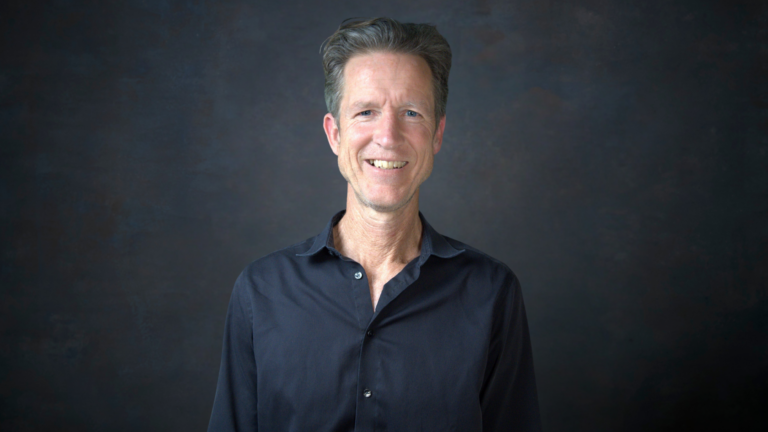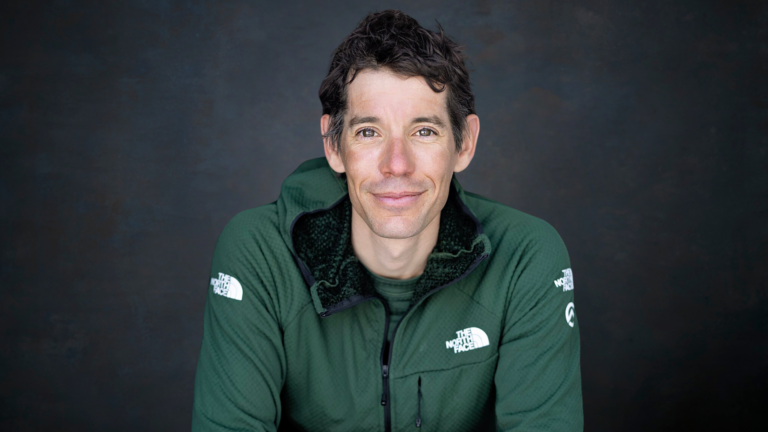This week’s conversation is with Rebecca Rusch, a 7x-world champion in the ultra adventure/endurance realm and a member of the prestigious international Mountain Bike Hall of Fame.
Rebecca has been recognized by Outside Magazine among the Top 40 Women Who’ve Made the Biggest Impact and by Men’s Journal as one of the 25 Most Adventurous Women.
Known for seeking the toughest challenges imaginable and pushing herself into unknown territory has yielded Rebecca many firsts…
Notably, the first female ascent on Yosemite’s 3000-ft. El Capitan Bermuda Dunes route and a first descent river boarding 300 miles of the entire Grand Canyon in 18 winter days.
On two wheels, she is the only female competitor to win the iconic Leadville 100 four times and is a two time, first female finisher at the Iditarod Trail Invitational, pedaling 350 self-supported miles through the Alaskan wilderness.
Most recently she completed a previously unattempted North to South route traversing Iceland in winter by fatback alongside Chris Burkard and Angus Morton.
So I think it begs the question.. why?
Why go to these lengths? What is she searching for? What do these expeditions reveal?
That’s what this conversation is about.
“I’ve started referring to myself as an explorer, because I feel like ‘athlete’ is too small for what I’m doing and what I want to do. Athlete is part of it, but it’s not the whole thing.”
In This Episode:
Using the outdoors as a teacher
My biggest teacher is movement in the outdoors and that’s how I have started, it’s how I started as a young child playing in the dirt, camping in the backyard, asking my mom like, “Can I camp out in the backyard again this weekend?” And continuing, even this past winter on the Iditarod Trail and riding my bike in the snow for a week at a time. The outdoors is my teacher. And if you follow the arc of my career, it might look like it’s all over the place, but there really is this constant theme of the outdoors, movement, and curiosity and exploration.
Her mind as a competitive advantage
I’m pretty average. You can ask my coach. My physiology is okay, it’s good, but the longevity that’s really happened in the last decade for me is all the other stuff. What I call the spaces in between. Your mind, your brain, what you listen to, what you think about, how you sleep. I know you talk about a lot of those things, but that’s really why I feel like this last winter was the best performance of my life in Alaska – because I combined some new exciting techniques. I’m pretty excited about how I am now and where science and ancient techniques are coming together and implementing some of that stuff has been super fun.
What she’s trying to understand
I originally thought it was about me. I’m performing, winning on a podium, going this place, understanding me, but really the cool trajectory that really is very new, that’s just starting to crystallize for me is that the reason I’m studying me, and this is the purpose that my dad has helped give me, is that now I can package and put that together and take that and share that with other people and fast track their performance. I truly believe this is my purpose in life. It’s why I’m athletically gifted. I’ve created my path this way eventually to share what I know with other people. Not that I know everything, but I know a bunch of stuff I’ve written and then more miles than most people will. It’s almost like getting a cliff notes instead of having to take the university class. So yeah, it was me and now it’s expanding beyond me.
The process of writing a book
It was such a cool exercise to, one, look back and celebrate that, oh, wow, I’ve done some cool stuff. Instead of just, what’s the next thing? How can I win more? How can I do more? How can I do the next thing? I was forced to look backwards, a reverse bucket list and be like, whoa, okay. Not to brag or anything, but I’ve done some cool stuff when I had to write it all down. But then when the book did come out and young girls read it and dads read it and athletes read it and non-athletes read it, and I got some really nice feedback from people that I saw that it helped people. I was shocked by that. I didn’t expect it. I didn’t understand it, but that was the first opening that the power of telling a story and sharing your experience so that others can resonate and be like, oh, I feel that way too. I’m not totally alone in the world.
Give equals get
It’s one of my core, what I call my navigational handrails that I’ve developed, and it’s that give equals get. When we do give a little of ourselves, we get a lot back. That really has shaped the last, I don’t know, decade of my work and my career.
Choices, not sacrifices
Not sacrifices. There were choices that I made. I could have gotten a different job. I didn’t have to live out of my car. I didn’t have to go after these things, but that explorer in me, the curiosity… So no, I don’t look at my choices as sacrifices. Somebody might like sleeping in the dirt or sleeping in your car, for some people isn’t the right thing, but what it led to was like, oh yeah, I’ll sleep in the dirt. If I can go climb El Cap, sure, I’ll go without eating as much as I want to eat. If I can travel the world, I’ll go without a regular nine-to-five job if I can carve my own career path. I almost feel lucky that I had the courage to carve this really unconventional path that there was no trail map for.
It’s not luck
So yeah, it was a sacrifice, but look, people now, I went back to my high school reunion and they’re just like, “You’re so lucky. You’re so lucky.” And I’m like, “I’m not lucky.” I talked to a bunch of my classmates who are, I went to school in the suburbs of Chicago and they’re all still there. And they’re working in the city, they’re commuting. They don’t like their jobs and they’re just saying, “You’re so lucky.” And it’s like, well, it wasn’t luck at all. It was hard work and choice.
Why she continues to push up against her own limits
I need that because when I push myself really hard physically, that is my teacher. That is where I learn about myself. It’s where I understand what’s next. It’s where I solve my problems. Whether it’s a bike ride here in my backyard or the really deep philosophical questions of why am I here? What am I doing? What is this world about? That happens for me in places where I’m physically at my limit.
The power of self-talk
It’s words that you wouldn’t even use on yourself. This is something that I tell people that I talk to, is like if you’re saying, Rebecca, you suck. You’d go home. Why are you even doing this? Would I say that to you if you were next to me? Absolutely not. What would I say? I’d say “No, well, you can do it. Come on, you’ve got this, you prepared, blah, blah, blah.” We don’t use the kind voice on ourself very often. So, yeah, I was super negative about myself and if I could have quit, I would have. But the fact that there’s nowhere to go there, I couldn’t quit. I had to finish. I finished not proud of my performance and not proud of that athlete who was on the trail and being okay. People were like, “You won. That was great.” But I wasn’t proud of the achievement. I knew I had to go back and do it better. My very next thought was, okay, I can do that better.
Being alone vs loneliness
I do a lot of stuff alone. I’m an introvert and if I don’t have quite a bit of time alone, I’m not that nice to be around. Alone doesn’t mean loneliness to me. That said, I have a husband and dogs and I cherish my community. When I’m on the trail, like the Iditarod Trail, alone at this point, I feel it is for me, but I also feel a responsibility to take that story and that experience and share it with people who will never be on the Iditarod Trail. We’re circling back a little bit to the trajectory of my career of giving back, and this is what I can give, is I started calling this concept that is coming to me of like, I find myself on the trail, I solve my answers on the trail, I find my purpose on the trail and I’ve started calling it dirt dharma because it’s like, this is where I need to be. It’s how I understand my life, is with dirt dharma.
How her dad helped her find purpose, after his passing
I was drawn to that location in the middle of Laos to a tree where my dad died, and that expedition really brought into focus, my purpose and my reason for being an endurance athlete and my why. People who ask why you’ve been doing this. I woke up there standing at the tree and understanding that I could use my bike for a lot more. But really, Michael, it’s like the six years since that happened, I’m only just now understanding what that ride meant and understanding that I felt my dad’s presence there.
“Be good”
I wrote a mission statement for myself and stemming from the words that my dad signed all these letters home from the Vietnam war, with the words, be good. So now really, “Be Good” has become the name of my foundation, my guiding principle, and it really is quite simple. Being good to yourself, the environment, the people around you. It’s not that hard, but I wasn’t listening for a while.



